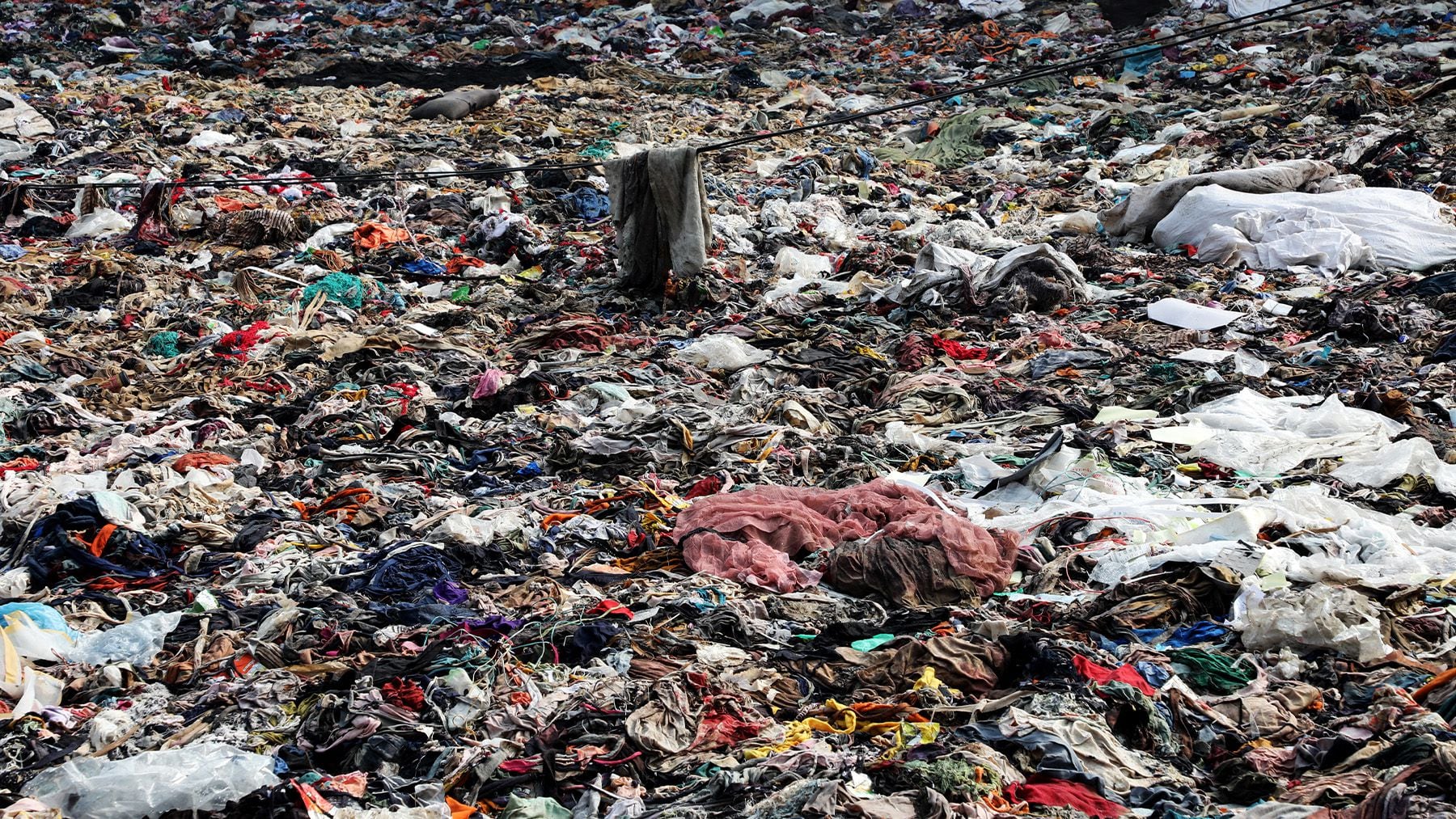
A typical Patagonia ad evokes a sense of awe for nature: rugged terrain under an endless blue sky, extreme athletes summiting the vast mountain range.
So it was a departure, to say the least, when Patagonia released “The Shitthropocene,” a satirical, 45-minute deep dive into the history of fast fashion that jumps from montages of cavemen to interviews with fashion anthropologists. Flashy graphics illustrate the dire effects of overconsumption on the environment.
That message was lost on many viewers. A New York Times critic called the video “rather half-baked.” The top-rated comment on Patagonia’s Instagram post promoting the campaign called out the “deep irony” of using “anti-consumerist advertising to sell” clothing.
Even some fans of the brand found themselves scratching their heads.
“I found this latest film a little bit performative, and very much the brand trying to virtue signal to their customers,” said Quynh Mai, founder of digital creative agency Qulture. “It was disappointing to me as a Patagonia customer myself.”
The reality is, most people didn’t need “The Shitthropocene” to alert them to the devastating impact of fashion on the planet. In surveys, consumers, especially younger ones, express strong preferences for ethically-sourced clothing over fast fashion, even if it means paying more.
But when it comes time to actually shop, it’s often price first, values second. Even as sustainable fashion was hitting the mainstream, Shein and Temu were building gigantic businesses out of making apparel faster and cheaper than the competition.
The first instinct at many brands and marketing firms has been to take up that disconnect between what people say they believe and how they shop as a cause. Vestiaire Collective, for instance, banned brands such as Boohoo and Shein from its resale platform in 2022 and called on customers to “join our fight against fast fashion.”
Sometimes these tactics work. Swedish brand Asket said its 2019 “Fuck Fast Fashion” campaign has increased engagement on its website. Vestiaire Collective told BoF more than 90 percent of users affected by its fast fashion ban have continued to use the platform, and that the campaign drew a “significant number of new members,” its chief impact officer Dounia Wone said in a statement.
Since its release, “The Shitthropocene” has been viewed nearly half a million times, according to Patagonia. “We’re pleased this film is getting attention from our community and the media and that it is initiating important conversations on consumption and its effects on the planet,” Patagonia president Jenna Johnson said in a statement.
More often, these campaigns can come off as sanctimonious, and opens all but the greenest brands to charges of hypocrisy. Vestiaire Collective, for instance, released a study in late April claiming the average cost-per-wear of fast fashion items was higher than for secondhand luxury clothing. It was besieged on Instagram by commenters questioning its methodology.
“It’s anti-marketing that still feels like marketing,” said Neri Karra, a brand consultant and professor of entrepreneurship strategy at Oxford University. “People find that annoying, because they don’t need to be told something they already know.”
The End of Woke
When it comes to sustainability, the subtle approach is usually safer, and often more effective.
“Sustainability messaging should always be the cherry on top,” said Shannon Welch, PR consultant and advisor for sustainability advocacy groups Fashion Revolution and the UN’s Fashion Impact Fund. “Quality and price are way more important.”
Reformation highlights its sustainability credentials in a quarterly report that states: “We think companies should be accountable for more than just profits.” When it speaks directly to customers, however, the tone tends to be quippy and positive. After placing an online order, a typical confirmation email reads, “You did good. We ran the numbers, and below are the RefScale savings from your order: 16 pounds of carbon dioxide and 116 gallons of water.”
But the moment for values-led marketing may be over, according to Mai. She points to the downward trajectory of direct-to-consumer brands that pioneered this way of speaking to consumers, emphasising themes like feminism or transparency in a moral rather than commercial appeal.
In addition to failing to drive sales growth over the long term, many of these companies were hit hard by allegations of toxic workplaces, discriminatory practices and dodgy supply chains in recent years.
“There have been some very public outings of virtuous brands that actually weren’t virtuous,” said Mai. “Consumers have become more distrustful than ever.”
The Point of Polemics
In-your-face messaging — and bashing fast fashion in particular — can still be effective, even with today’s more wary consumers.
When Asket launched its expletive-laden campaign — an epithet the company painted on a mural in Stockholm — it knew the message would be polarising according to Asket head of marketing Sarah Arts.
“[People] who are vested in the mission or within the apparel industry, they get it,” Arts told BoF. “Whereas … with people who are maybe not as familiar with the apparel industry and how it works, there is an element of defensiveness.”
The ultimate goal, according to Asket, Patagonia and Vestiaire Collective, is to spread awareness about fashion’s environmental impact and potentially alter consumption habits — even if that means upsetting some people in the process. Vestiaire’s fast fashion ban went viral, reaching 20 million impressions.
“Businesses — including Patagonia — need to be held accountable for our impact on the planet,” Johnson said. “We do our best to acknowledge and be transparent about being complicit in the environmental crisis when our purpose is being in business to save our home planet.”
Pinning the blame on fast fashion alone may be reductive and lacking in nuance, but this kind of extreme language has resulted in political momentum for sustainable regulations, said Elizabeth Cline, author of “Overdressed: The Shockingly High Cost of Cheap Fashion” and a lecturer on sustainability and consumerism at Columbia University.
“Fast fashion has become a convenient punching bag,” Cline said. “But [if that means] sustainable companies can grow their share, good for them. Politicians can use it to pass laws? Good for them.”
Last summer, the European Union approved a slate of recommendations that all but aims to end fast fashion sales through new compliance measures, higher climate targets and restrictions in hazardous materials. California passed a law requiring fashion companies with over $1 billion in annual revenue to report annual emissions across their supply chain. New York’s Fashion Act, which the state legislature has not passed, would require brands generating more than $100 million to have full visibility across their supply chain and set comprehensive goals to cut carbon emissions.
Looking ahead, Asket is considering using softer language around its efforts to educate consumers, said Arts. “We do talk internally about how we can get the message across and make sure we turn on more people than we turn off.” For instance, Asket hosts free workshops on repairing and caring for apparel.
The brand has no intention of retiring its Fuck Fast Fashion sentiment any time soon, Arts added.



